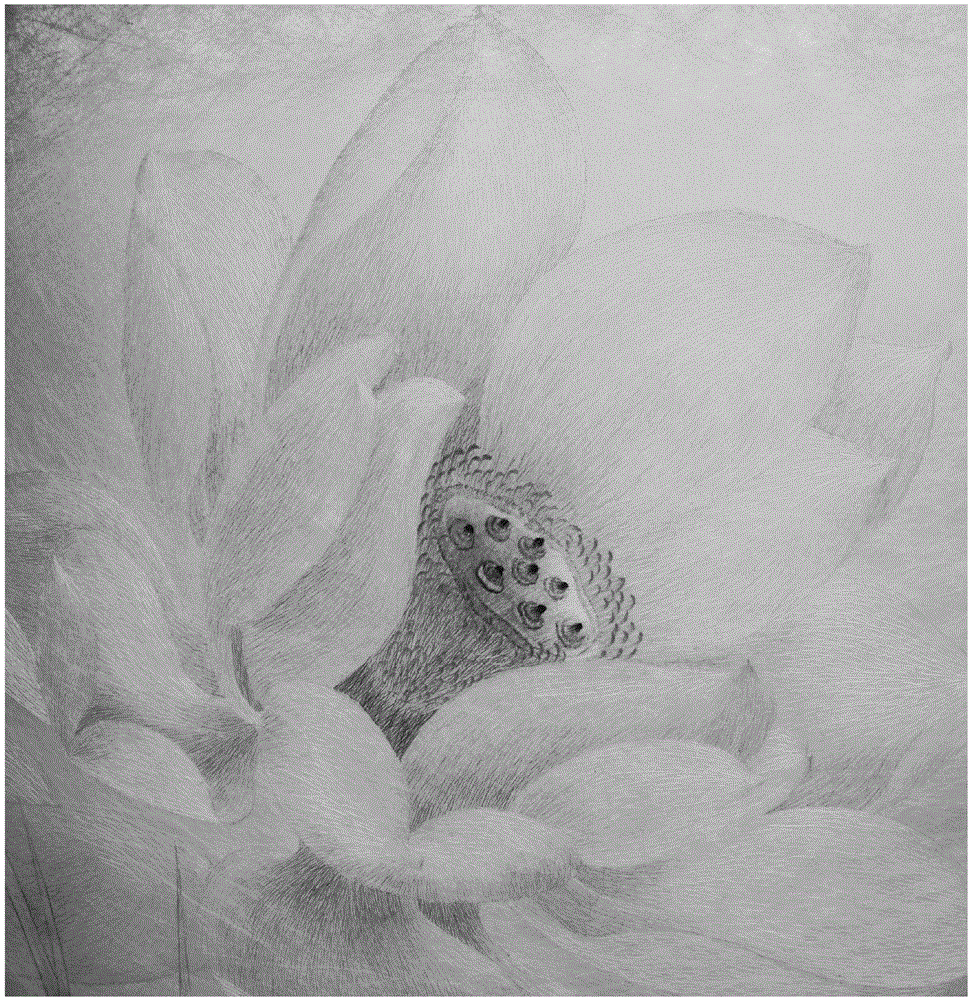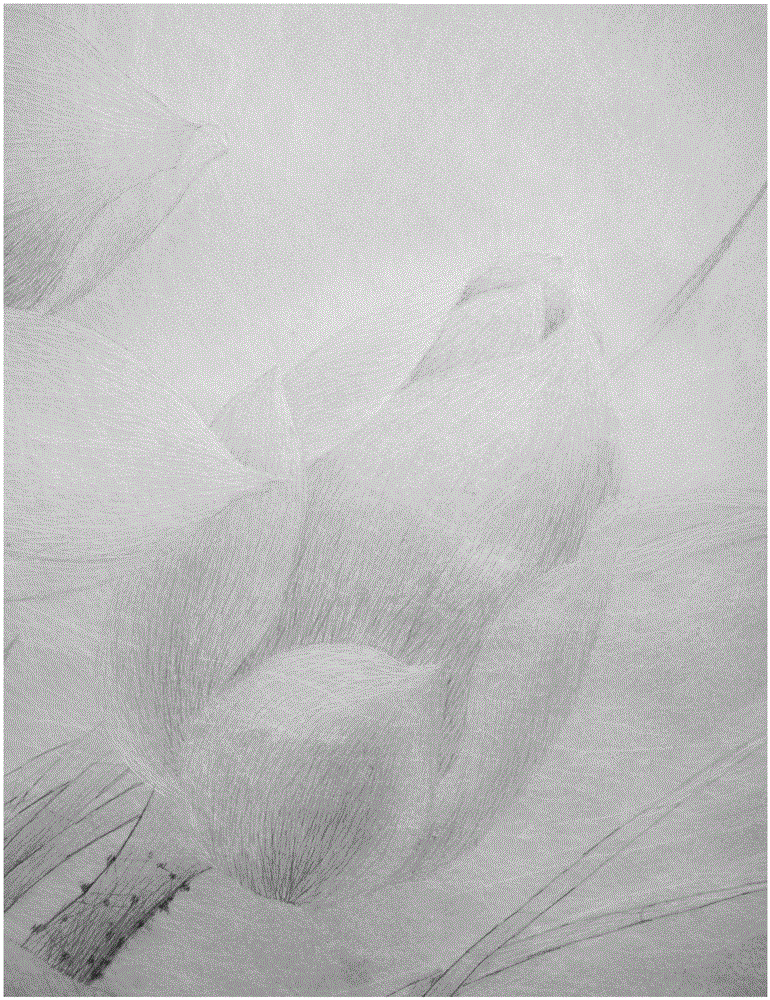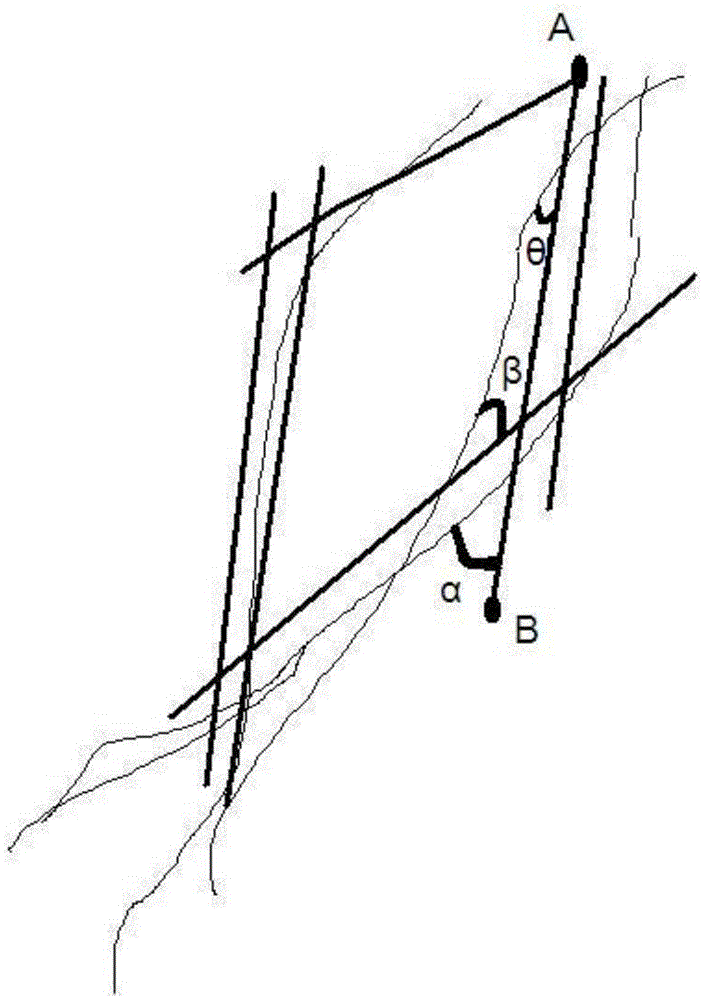Organdie embroidery
A technique of cicada wings and embroidery, which is applied in the field of embroidery, can solve problems such as thick and dull, and achieve the effect of light embroidery traces
- Summary
- Abstract
- Description
- Claims
- Application Information
AI Technical Summary
Problems solved by technology
Method used
Image
Examples
Embodiment 1
[0028] Embroidery on silk or silk-like silk with 90-95% light transmittance figure 1 For the main part of the lotus petals, the needle method of virtual needle and cross needle is adopted. The coincidence rate of the needle application direction and the thread direction of the base material is 85%. The crossing angle of the trend is 5-20°, and the primer thread only refers to the uppermost primer thread touched by the two contact points of the needle and the primer.
[0029] The specific image of the work refers to the main part of the embroidery painting, which is the most eye-catching and most eye-catching pattern embroidered by the creator, without the base material. The specific images of Kai Fugui's works are flowers, branches and leaves. The uppermost thread of base material in this application refers to the first layer of thread of base material seen from the front view of the embroidery drawing. Because the base material generally has multiple layers, and the directi...
Embodiment 2
[0035] Embroidery on silk or silk-like silk with 90-95% light transmittance figure 1 For the main part of the lotus tendon rod, the needle method of virtual needle and cross needle is adopted. The coincidence rate of the needle application direction and the silk thread direction of the base material is 90%. The intersecting oblique angle of the direction of strands is 10-20°, and the base material strands only refer to the uppermost base material strands touched by the two contact points of the needle and the base material. The area of the blurred part is 80% of the total area of the lotus ribs, and the distance between the virtual needles falling on the bottom material is 0.1-2mm. The outline width is 0.1mm. The light transmittance of the blurred part is 90-92%. The non-blurred part is the backlight part of the rib, accounting for 3% of the total area of the rib, and the light transmittance of this part is 3%. The thickness of the lotus tendon rod on the front surfac...
Embodiment 3
[0038] Embroidery on silk or silk-like silk with 90-95% light transmittance figure 1 For the main part of the pond, virtual needles and cross needles were used, and the coincidence rate between the direction of the needle application and the direction of the strands of the base material was 93%. The crossing angle of the trend is 5-15°, and the primer thread only refers to the uppermost primer thread touched by the two contact points of the needle and the primer. The area of the virtualized part is 95% of the total area of the pond, and the distance between the virtual needles falling on the bottom material is 2-15mm. No outline. The light transmittance of the blurred part is 92-93%. The non-blurred part is the shadow part of the pond, accounting for 2% of the total area of the pond, and the light transmittance of this part is 45%. The thickness of the pond on the front surface of the bottom material is 0.2-0.6mm.
[0039] And in the prior art, when embroidering pond...
PUM
 Login to View More
Login to View More Abstract
Description
Claims
Application Information
 Login to View More
Login to View More - R&D
- Intellectual Property
- Life Sciences
- Materials
- Tech Scout
- Unparalleled Data Quality
- Higher Quality Content
- 60% Fewer Hallucinations
Browse by: Latest US Patents, China's latest patents, Technical Efficacy Thesaurus, Application Domain, Technology Topic, Popular Technical Reports.
© 2025 PatSnap. All rights reserved.Legal|Privacy policy|Modern Slavery Act Transparency Statement|Sitemap|About US| Contact US: help@patsnap.com



